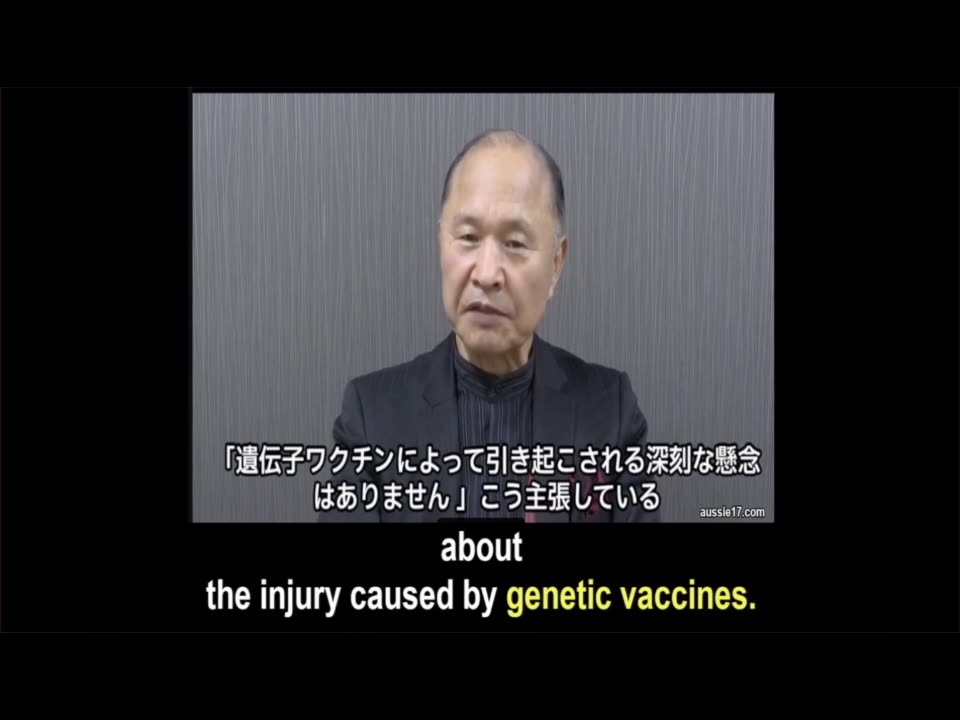- Parents and government officials are often at odds on determining the best course of care for a child’s health.
- CPS sometimes teams up with doctors to threaten parents and remove their children if they disagree with medical authorities.
- Case histories are presented to illustrate abuse by doctors in positions of authority in many hospitals.
Medical doctors and social service workers are increasingly challenging the right of parents to make health care decisions for children when parents refuse to accept medical interventions and treatments considered to be “standard of care” by government health officials. State courts are becoming a battleground between parents, doctors and government officials vying for the power to decide what is best for a child when it comes to health care. Beyond whether a particular medical intervention is safe or effective is the larger question: Who should have the final say in making health care decisions for children?
There are many different perspectives to consider. First, mainstream medical doctors, hospitals, and government officials contend that parents should not have the final say because parents cannot possibly understand the scientific facts that have led to “standard of care” medical and public health policies established with the well-being of the general population in mind.1 At the other end of the spectrum are parents who hold that all medical interventions are wrong and that prayer will either cure the illness or end with the inevitable death of the child.2 In between are parents who:
• simply want to understand the risks and give consent before a child is given a vaccine or other pharmaceutical product;
• prefer an alternative, more holistic approach rather than accepting conventional medical therapies; or
• have evidence that the benefits of a medical intervention do not outweigh the risks for their child.
Families in the News
Katie Wenecke
Scare tactics highlighting the dispute over medical decisions for children are not new. In 2005, Katie Wernecke’s parents clashed with doctors at M.D. Anderson Cancer Center in Houston, Texas. Katie had begun conventional treatment for Hodkin’s Lymphoma but, when the hospital planned to add radiation therapy to the chemotherapy regimen, her parents objected and opted to first explore less invasive alternative treatments.
The court sided with the hospital, placed Katie in a foster home and enforced the resumption of conventional cancer treatment at M.D. Anderson. The mother was arrested for trying to hide her daughter to protect her from the forced ”standard of care” radiation and chemotherapy regimen. Though the girl’s condition initially responded to treatment, she continued to deteriorate on the hospital-mandated therapy. With her chance of survival estimated at only 20 percent, she was released to her parents. In the last publicized report (June, 2009), reportedly Katie had recovered under her family’s care without radiation and chemotherapy.”3
Justina Pelletier
Justina Pelletier was originally diagnosed in 2011 with mitochondrial disease, a rare condition that causes muscle pain and weakness, at Tufts Medical Center in Boston, Massachusetts. After two years of dealing with the disease under medical supervision, Justina’s parents brought her to Boston Children’s Hospital for treatment of flu-like symptoms. There, doctors dismissed the previous diagnosis, claiming instead that Justina’s symptoms were due to a psychiatric disorder.
When her parents disagreed and attempted to discharge their daughter, the hospital authorities called in Child Protective Services (CPS) and charged the parents with “medical abuse” of a child. Within days, Justina and her parents were embroiled in a custody battle that would raise national and international outcry. After being kept apart for 16 months. Justina was finally released to her parents custody on June 18, 2014.4
Sammy Nikolayev
Little Sammy Nikolayev had been under the care of doctors since he was diagnosed soon after birth with a heart defect that would require daily medications until he was mature enough to undergo surgery to repair the holes in his heart. When Sammy’s parents brought him to the emergency room with severe flu symptoms at five months old, hospital authorities became alarmed at his “failure to thrive” and recommended immediate surgery.
Unhappy with the way they and their baby were being treated and wanting a second opinion, Anna and Alex Nikolayev removed their baby from the hospital and brought him directly to another one in the area to seek further counseling about the proposed heart surgery. Doctors at the second hospital, Kaiser Permanente, found the parents to be capable of caring for their son at home and released Sammy to his parents, recommending that they follow-up with their pediatrician the next day.
Before that could happen, the first hospital alerted CPS officials, who arrived at the family’s apartment and forcibly took custody of the infant, charging the young parents with medical neglect. There was no court order and the parents were not told where their baby was being taken. The case might not have come to national attention if the mother had not videotaped and publicized the seizure of her child by CPS.5
Ariana Godboldo
The case of Detroit mother Maryanne Godboldo garnered international headlines and raised fears among parents all over the world when Michigan CPS brought in an armed SWAT team to arrest her and seize her daughter, Ariana, over disputed treatment of the child with the powerful antipsychotic drug Risperdal. As outlined by the Citizens Commission on Human Rights International (CCHR),6 Ariana had been a happy, healthy girl whose only disability was a malformed leg that was partially amputated shortly after birth.
Her mother homeschooled her until age 11, when Ariana said she wanted to go to a public school. That decision led to mandated school vaccinations which, according to Maryanne, caused her daughter to suffer health problems and serious and immediate behavioral changes. Although doctors did not acknowledge that vaccines could have been responsible for her sudden physical and mental health deterioration, Ariana underwent psychiatric evaluation and doctors prescribed Risperdal.
When Ariana’s condition worsened over the next few months, under a doctor’s supervision Maryanne carefully weaned her daughter off of the controversial psychiatric drug. In March of 2011, state officials demanded that Risperdal therapy be resumed. When Maryanne refused, social services and armed police using an illegal warrant tried to force their way into the home, setting in motion a 10-hour stand-off.
Maryanne finally agreed to surrender to the police on the condition that her daughter be released to Maryanne’s sister rather than a psychiatric facility and that Ariana not be given drugs. Neither promise was kept, as Maryanne found out after she was released from jail five days later.
Following protracted legal battles and appeals by the state health officials, all charges against Maryanne Godboldo were dropped in December of 2011, a decision that has been upheld time and again, most recently in July of 2014.7
Isaiah Rider
When doctors at hospitals in Kansas City, Boston, Texas and, Chicago were unable to find an effective treatment for 16-year-old Isaiah Rider’s neurofibromatosis, a genetic condition that causes tumors to grow on nerves throughout his body, his mother wanted to transfer him to another hospital. Disagreeing with the mother’s decision, doctors at Lurie’s Hospital where Isaiah had most recently undergone surgery, accused her of “medical child abuse.” The doctors said that the boy’s symptoms were less severe when she was not around and alleged that Michelle Rider “exhibited hallmark characteristics of Munchausen by proxy syndrome, also called ‘medical child abuse,’ a rare condition in which a caregiver subjects a minor to unnecessary medical procedures.”8
Social Services seized custody of the boy, placed him in a foster home, and has limited visitation between the mother and son to two one-hour supervised visits weekly. Despite pleas from Isaiah, who says his mother has done nothing wrong and that, “What Lurie Children’s hospital has done to me is ruined my life, and this is something I never will forget,” a judge upheld the custody order in July 2014. Reportedly, Isaiah remains in foster care.9
Jodi and Scott Ferris
By any number of accounts, the story of what happened to Jodi and Scott Ferris of Pennsylvania when their planned midwife-assisted home birth was changed at the last minute to an “ambulance in the parking lot of a hospital” birth is one that should never have happened.10 11 Although the baby was normal and healthy at birth, hospital medical staff and a social worker tried to force the parents to accept hospital protocol and give their baby an injection of vitamin K and hepatitis B vaccine.
When the parents refused to give their consent, the newborn was taken into state custody and the parents were forcibly removed from the hospital grounds. The family had to resort to a lawsuit to recover custody of their baby.
The Bidwell/Gray Family
The Aliea Bidwell/Ben Gray family of Alabama also were threatened with losing custody of their infant son if they refused to allow the hospital to vaccinate him against Hepatitis B at birth. In their case, the couple had informed the medical staff prior to admission that they were not going to vaccinate their son but after the baby was born, a doctor at the hospital told them that hepatitis B vaccine must be given by state law (incorrecct). He harassed and threatened them until they ultimately agreed out of fear they would lose their baby. They are filing a lawsuit against the doctor.12
Sarah Hershberger
In April of 2013, 10-year-old Sarah Hershberger was diagnosed with a rare cancer and began chemotherapy treatments at Akron Children’s Hospital in Ohio. After only two courses of treatment, she was so ill her parents were afraid they would lose her if they continued the chemotherapy.
After a great deal of prayer, the Amish family decided to stop the chemotherapy, at least temporarily, and pursue more natural, less toxic interventions. While recognizing the Hershbergers as “suitable, loving parents,” the hospital held that, “Parental rights, even if based upon firm belief and honest convictions can be limited in order to protect the ‘best interests’ of the child.”13
The appellate court upheld the hospital’s position and appointed a legal guardian to make medical decisions for Sarah. Fearing their daughter would be forced to resume chemotherapy treatments that could kill her, the Hershbergers fled the country and only returned once the court-appointed guardian resigned and it appeared that the case would not be pursued in the courts. Hershberger’s attorney, Maurice Thompson, contends that, “Having a free society means that people need to be free to take risks, including risks with their family when they are suitable and loving parents who will take those risks out of a position of love and belief.”14
Who Gets to Make the Final Call?
The National Institutes of Health supports parental rights in making medical decisions for their children but stops short of arguing that those rights are absolute: “When the physician and health care team believe that parental decisions are clearly inconsistent with the child or adolescent’s best interests, the assistance of an institutional ethics committee or ethics consultant is recommended. If this is not available or the conflict is not resolved at this level, then the involvement of local child protection authorities and the legal system may be unavoidable. Although such a course of action is often uncomfortable for the health care team and should only be used as a last result, its ethical basis rests soundly on the health care professional’s duty to ensure that the best interests of the child or adolescent are given primacy.”15
Few parents would disagree with the spirit of that statement, that the welfare of the child must be first and foremost; the issue at odds is who gets to make the final determination about what is best for a child.
Sarah Hershberger’s attorney Mr. Thompson spoke to the heart of the matter when he said, “Whether it’s the right to refuse unwanted forced medical treatment, or whether it’s the fundamental right that guarantees you to raise and bring up your child in terms of their education and their health care in the way that you see fit as a parent, it’s pretty clear that… constitutional rights are at stake here. And that’s really what we’re protecting.”16
References:
1 National Network for Immunization Information (NNii). Vaccine Misinformation. Feb. 12, 2009.
2 Hall H. Faith Healing: Reliegious Freedom vs. Child Protection. Science-Based Medicine. Nov. 19, 2013.
3 Hodgkin’s, kids, and the Abuse of Power. HealthKnot.com. June, 2009.
4 Berman B. Justina Pelletier Pushes Law in Washington DC. Fox News. Jul. 16, 2014.
5 Weissmueller A. “They Kidnapped Our Child”: Why CPS Needs Transparency Now. Reason.com. Aug. 12, 2013.
6 Maryanne Godboldo’s Story. CCHR International. 2014.
7 Charges Dismissed, Again, Against Detroit Standoff Mom. CBS News. July 11, 2014.
8 Gutowsky C. Woman Fights Lurie Children’s Hospital on Medical Child Abuse Claims. Chicago Tribune. May 28, 2014.
9 De Sarle M. Judge Denies Custody to Isaiah Rider’s Mother. KMBC.com. July 2, 2014.
10 Farris M. Newborn Seized in Hospital by Police, Social Worker. HSLDA. Mar. 27, 2012.
11 Kicked Out of the Maternity Ward: An Interview with Jodi Ferris. HSLDA Radio. January 13-17, 2014.
12 Parents Blackmailed By Doctor: Consent To Vaccine Or We Take Your Newborn. Inquisitr. Mar. 28, 2014.
13 Oppenheimer T. Amish Family Speaks Out About Fleeing U.S. to Save Daughter From Court-Mandated Chemo. Reason.com. Mar. 16, 2014.
14 Oppenheimer T. Amish Family Speaks Out About Fleeing U.S. to Save Daughter From Court-Mandated Chemo. Reason.com. Mar. 16, 2014.
15 Harrison C. Treatment Decisions Regarding Infants, Children and Adolescents. Paediatr Child Health. February 2004.
16 Oppenheimer T. Amish Family Speaks Out About Fleeing U.S. to Save Daughter From Court-Mandated Chemo. Reason.com. Mar. 16, 2014.












